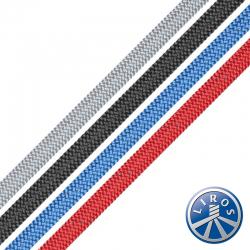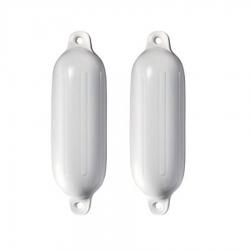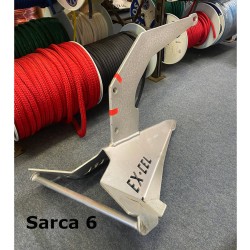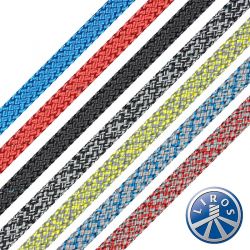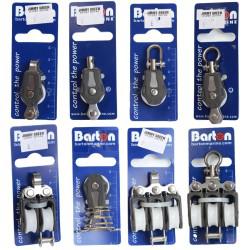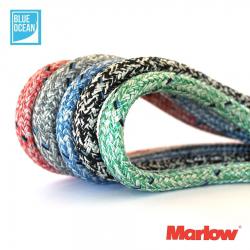How to estimate the length of a single line Mooring Strop
Single Line Mooring Strops ~ for Swinging Moorings
- Measure or estimate the freeboard at the bow i.e. the vertical distance between the bow roller and the surface of the water
- Decide the optimum angle from the mooring buoy attachment to the stemhead – this will be the load bearing angle of the mooring strop
- Calculate the hypotenuse with the help of the appropriate geometric formula
- Subtract the height of the mooring buoy, if the attachment point is a ring on top, or add on the depth if the attachment point is beneath the surface
- Add on the distance from the bow roller to the strongpoint on deck, to which the strop will be secured
- Check your theoretical estimate against a working example, before ordering a strop to made up to a specific length
- Check with your local harbour/river mooring authority - they will almost certainly have advice, guidelines or even rulings on the mooring strop scope (length) and the mooring strop diameter - in addition to rulings on the scope and size of the riser and ground chain
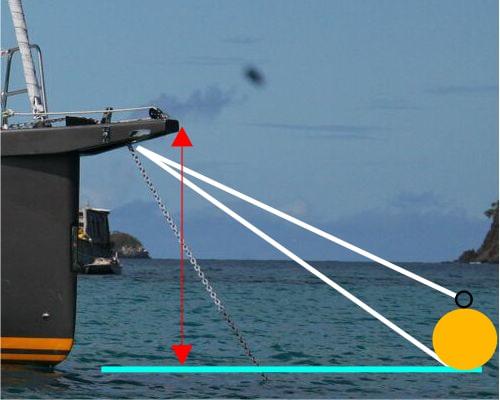
On the River Percuil in St Mawes for example, the local moorings authority give an advisory on all aspects of your mooring, including the maximum scope of the Boat Strop.
This is in the interests of keeping swinging circles and consequently, overlapping contact between moored boats to a minimum e.g. the mooring strop should be restricted to a maximum length calculated as follows:
The height of the bow fitting above the water, plus the distance from bow fitting to mooring cleat, plus between 0.3 metres (1ft) and 0.45 metres (1ft 6ins) or 0.75 metres (2ft 6ins) in deep water moorings. If the riser extends above the surface of the water, the extent should be subtracted from the total length.
Theoretical examples of how to estimate the length of a strop for a single swinging mooring
Consider carefully what angle is best for your individual mooring
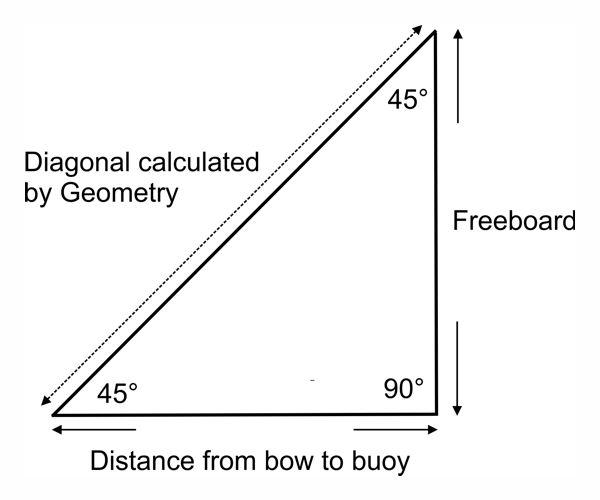
2 metre Freeboard Example at 45°
2 metre Freeboard means a 2 metre distance from stemhead to the surface of the water
The hypotenuse can be calculated by geometrical formula = 2.83 metres
Distance from Bow to Buoy (no allowance for rake in the stem) = 2 metres
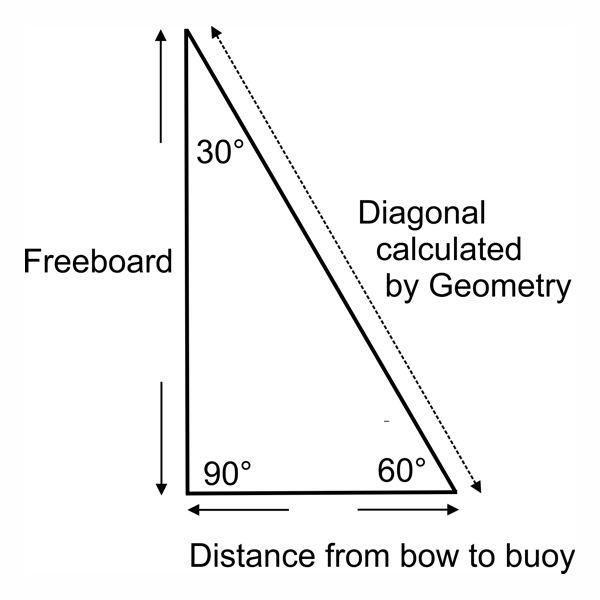
2 metre Freeboard Example at 60°
2 metre Freeboard means a 2 metre distance from stemhead to the surface of the water
The hypotenuse can be calculated by geometrical formula = 2.31 metres
Distance from Bow to Buoy (no allowance for rake in the stem) = 1.16 metres
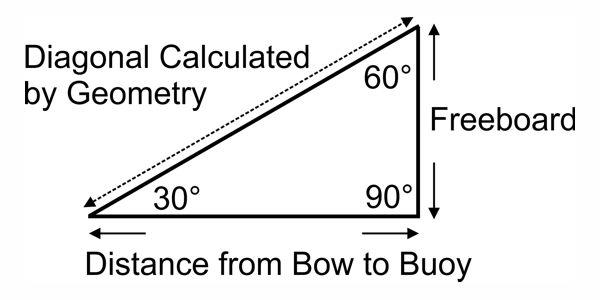
2 metre Freeboard Example at 30° - illustrates how the length of strop becomes too long at a shallower angle
2 metre Freeboard means a 2 metre distance from stemhead to the surface of the water
The hypotenuse can be calculated by geometrical formula = 4 metres
Distance from Bow to Buoy (no allowance for rake in the stem) = 3.46 metres
Jimmy Green Advisory on Twin Strops versus bridles for Multihulls:
For catamarans and trimarans, it will be prudent to use two separate strops shackled together to make a V shape instead of a spliced V bridle.
A further short strop could also be deployed at the apex of the V, to make a Y shape.
The desired length of each part is more complex to determine, but can be calculated using the method/principles for a single strop as a guide, with the addition of some basic geometetry or, even better, a scale plan.








